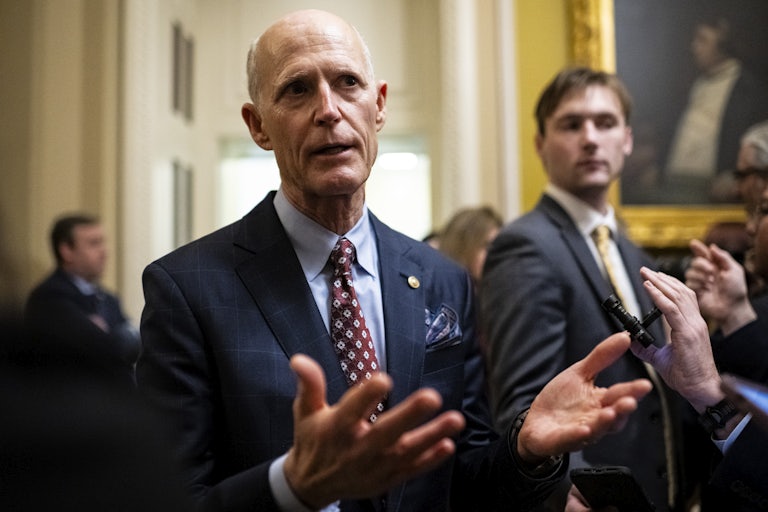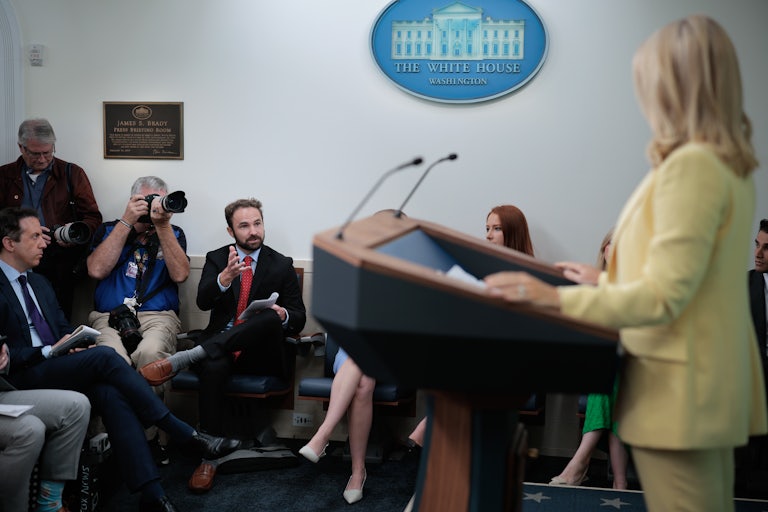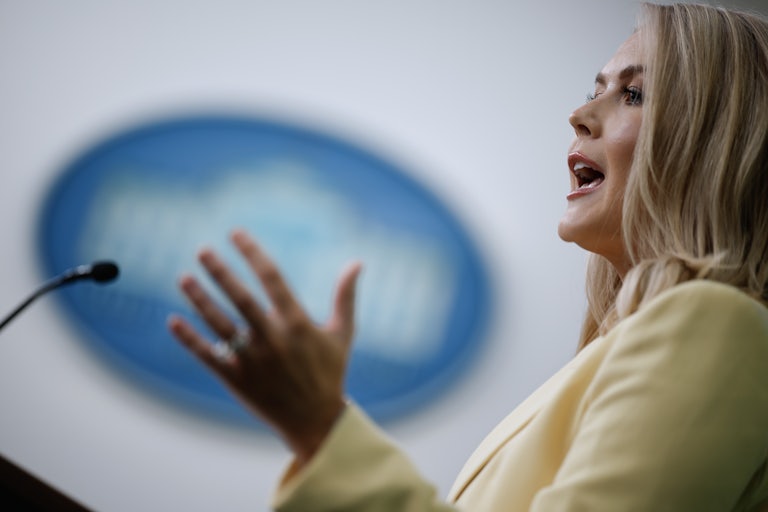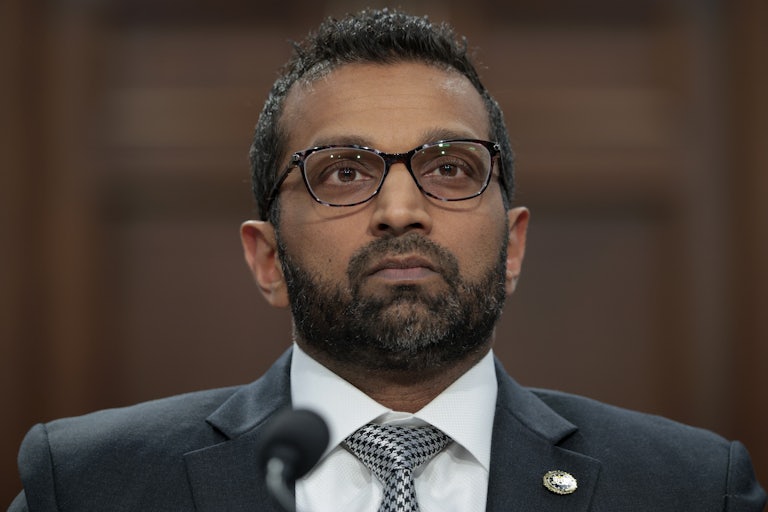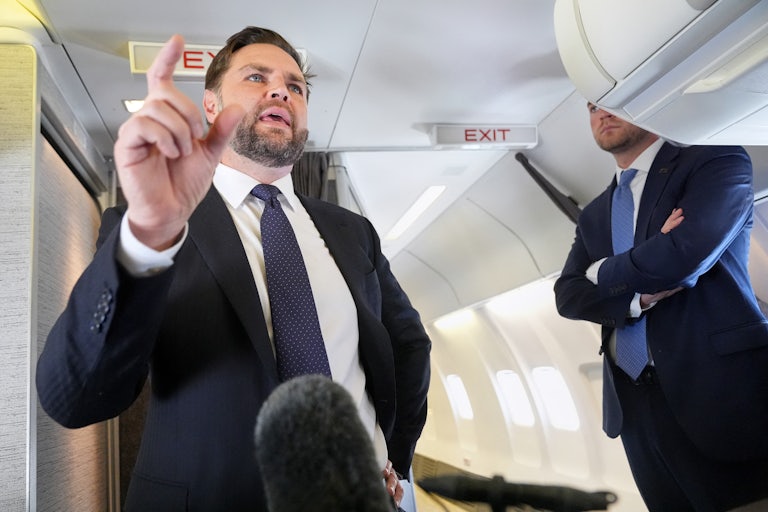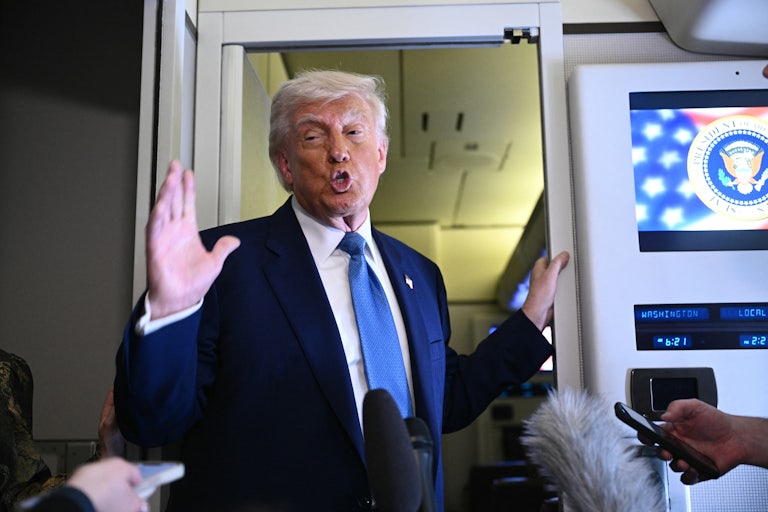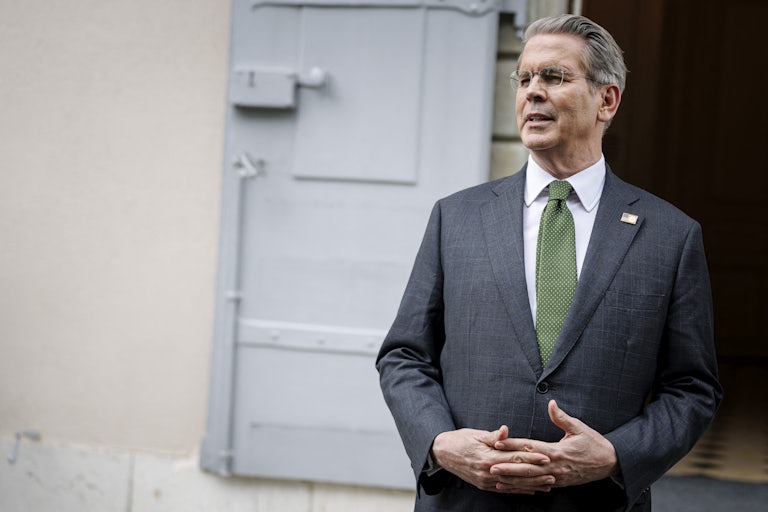Trump’s China Tariff Deal Is About to Come Back to Bite Him
Donald Trump caved too fast on China—and other countries are taking notice.
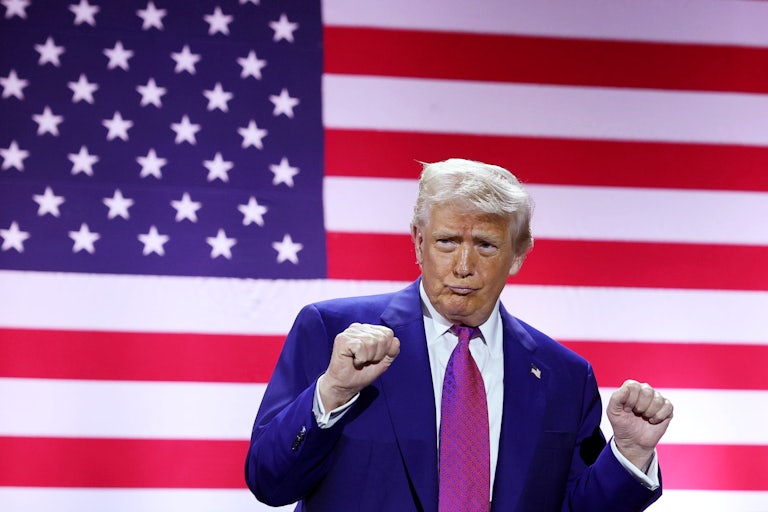
The president’s tariffs on China appear to have backfired.
Last week, Treasury Secretary Scott Bessent announced that U.S. tariffs on China would temporarily decrease to 30 percent from 145 percent for the next 90 days. The suspension followed a meeting in Geneva where Bessent and other U.S. officials met with their Chinese counterparts and temporarily put aside some of their differences. In exchange, China said it would lower its import tariff on American products to 10 percent from 125 percent. Both nations agreed to maintain a reciprocal tariff rate of 10 percent.
But countries “from Seoul to Brussels” have taken notice of the exchange, observing that tougher tactics against Trump appear to be the best recourse against the punishing tariffs, Bloomberg reported Sunday.
“This shifts the negotiating dynamic,” Stephen Olson, a former U.S. trade negotiator, told Bloomberg. “Many countries will look at the outcome of the Geneva negotiations and conclude that Trump has begun to realize that he has overplayed his hand.”
The Trump administration is running out of time to secure what it had promised would be “90 deals in 90 days” on U.S. trade—and other foreign leaders are realizing that they have better cards than they originally thought, leading them to play the waiting game rather than participate in a frenzied lineup for potential trade relief from Washington.
South Korea’s leading presidential candidate Lee Jae-myung has indicated that there’s no need to rush negotiations with U.S. trade officials. Japan’s Trade Minister Yoji Muto skipped a meeting with U.S. Trade Representative Jamieson Greer in South Korea last week.
“We will keep time limits in mind during negotiations, but we have no intention of compromising our national interests by becoming overly fixated on them,” Japanese Prime Minister Shigeru Ishiba said in Parliament Monday.
And some nations could be banking on the fact that the U.S. will be the first to feel the sting of Trump’s tariffs, forcing a policy change from within.
“The economic pain is more immediate and broad-based in the U.S., and this deal can be seen as the Trump administration acknowledging that,” Robert Subbaraman, head of global markets research at Nomura Holdings Inc, told Bloomberg.
